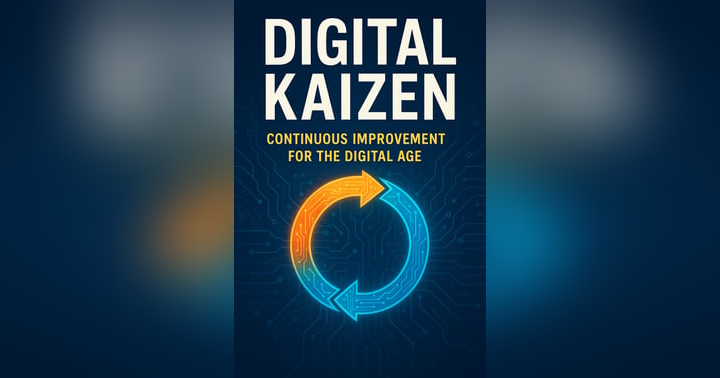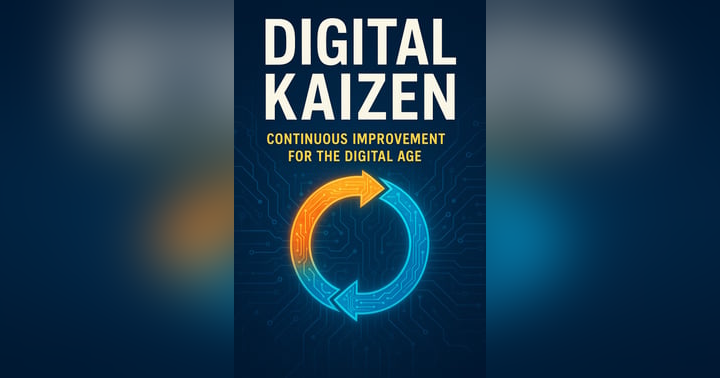Voice AI Gives Financial Advisors Perfect Memory

This post is part of the Digital Kaizen for Financial Advisors series—exploring how emerging voice and AI tools are reshaping how we listen, remember, and build client trust.
I've been watching something remarkable unfold in our industry. A quiet revolution that's changing how advisors think about client relationships.
Jacob Galajda describes his system as functioning like "Jarvis," Tony Stark's AI assistant in Iron Man. It responds to voice commands and remembers everything
But this isn't science fiction. It's happening now.
Jacob built a CRM prototype that lets advisors literally talk to their data. Using Whisper and LangChain AI frameworks, his system processes natural conversation and transforms it into actionable client insights.
The breakthrough came when he observed a consulting client struggling with lead capture. She spent hours commuting but couldn't enter CRM data until she reached her laptop.
Those lost hours represented missed opportunities. Forgotten details. Weakened client relationships.
Voice technology solved this problem instantly.
This isn't about a complete tech overhaul. It's about small, practical steps you can take right now to free up mental bandwidth and deepen relationships.
The Music Connection
Jacob's background in generative AI for music reveals something profound about voice processing. For five years as a Ph.D. student, he's been parsing voices and creating contextual lyrics.
The same neural network architectures that understand musical expression now process business conversations.
Both operate across what Jacob calls a "temporal plane." Meaning unfolds over time, whether in a song or a client meeting about retirement planning.
This temporal understanding changes everything.
Traditional note-taking captures snapshots. Voice AI captures the flow of conversation, the progression of ideas, the evolution of client needs.
Jacob describes it as "windowed sampling." The system takes context around each data point and slides across time, creating snapshots like a film strip.
When you piece them together, you get a complete story of why decisions matter.
The Memory Problem
Most advisors I know are drowning in fragmented notes. Client meetings generate scattered information across multiple systems.
Jacob's transcript-to-Notion tool, built entirely in Make.com, addresses this chaos. It processes Zoom and Grain recordings, corrects transcriptions, summarizes key points, and stores everything systematically.
The result? A streamlined workflow for his organization.
But efficiency isn't the real story here.
The real story is memory. Professional memory that scales across hundreds of clients over decades of relationships.
When a client mentions early retirement goals, that information needs to influence every future conversation. Every investment recommendation. Every risk assessment.
"Voice AI doesn't replace our thinking. It remembers what matters so we can think better."
Human memory fails. Voice tools don't just record data—they preserve context, emotion, and intention.
Digital Kaizen in Action
Jacob's approach embodies what I call Digital Kaizen. Small, continuous improvements that compound into transformational change.
Rather than replacing human expertise, voice AI enhances it. This interactive, continuous improvement approach creates sustainable competitive advantages.
The technology handles information capture and retrieval. Advisors focus on relationship building and strategic guidance.
Jacob observes that "very few organizations have great data keeping practices." Voice technology changes this fundamentally.
Instead of fighting with data entry, advisors can concentrate on what matters most: understanding client needs and delivering personalized solutions.
The Slack Bubble Insight
Jacob shared a brilliant observation about communication friction. He notices "Slack bubbles" where team members struggle to articulate complex thoughts in writing.
His solution? A quick voice huddle that resolves in five minutes what might take hours to type.
This same principle applies to client interactions. Voice captures nuance, emotion, and context that written communication often misses.
For advisors working with state employees navigating TRS and Social Security coordination, this nuance matters enormously.
A client's hesitation about retirement timing. Their concerns about healthcare costs. Their dreams for their children's education.
Voice AI preserves these human elements while organizing them into actionable intelligence.
The Infrastructure Challenge
Jacob explains that LLMs like ChatGPT don't actually remember unless you provide context. Building true AI memory requires sophisticated data infrastructure.
His approach involves collecting responses, storing them securely on distributed clusters, and using backend systems to query user profiles in formats LLMs can understand.
This infrastructure enables real-time decision support. When discussing investment strategies, the system instantly recalls every relevant client conversation, goal, and concern.
The advisor gains superhuman memory while maintaining human judgment.
Human-Centric Design
Jacob emphasizes a crucial choice in AI implementation: chatbot-guided conversations versus AI as background companion.
Clients perceive human-centric approaches as higher value. The technology operates invisibly, enhancing rather than replacing human interaction.
This distinction matters for advisory practices. Research shows 97% of advisors believe AI can grow their business by over 20%.
But growth comes through better relationships, not automated interactions.
Jacob's vision prioritizes human connection. Technology remembers details so advisors can focus on understanding, empathy, and strategic guidance.
The Relationship Revolution
After two decades in financial services, I've seen how information management affects client relationships. Advisors who remember details build stronger trust.
Voice AI democratizes this capability. Every advisor can have perfect recall of client conversations, goals, and concerns.
Imagine greeting a client and instantly accessing their complete financial journey. Their evolving goals. Their changing circumstances. Their expressed fears and aspirations.
This level of personalized attention transforms advisory relationships from transactional to transformational.
For advisors serving educators and healthcare workers, this technology addresses unique challenges. State retirement systems involve complex coordination between pensions, Social Security, and personal savings.
Voice AI can track these intricate details across multiple meetings, ensuring nothing falls through the cracks.
The Future of Advisory Work
Jacob predicts a future where relationships remain central to business success. "Creating stuff has never been easier, but creating interactions and building relationships is something special."
Technology won't replace human advisors. It will amplify their capacity for meaningful connection.
Voice interfaces mirror natural human communication patterns. They reduce cognitive load while increasing information capture quality.
This represents a fundamental shift in how professionals externalize their thinking processes.
Instead of fighting with systems, advisors can focus on what they do best: listening, understanding, and guiding clients toward their goals.
Practical Implementation
The technology Jacob describes isn't theoretical. It's operational and scalable.
Advisors can start with simple voice transcription tools for meeting notes. Graduate to AI-powered summarization systems. Eventually implement full conversational interfaces with client data.
Each step represents incremental improvement. Digital Kaizen in practice.
The key is maintaining focus on human relationships while leveraging technology for operational excellence.
Voice AI gives advisors perfect memory. But wisdom, empathy, and strategic thinking remain uniquely human.
The future belongs to advisors who embrace this partnership. Technology handles information management. Humans handle relationship building.
Together, they create advisory experiences that truly serve client needs.
The revolution is already beginning. The question isn't whether voice AI will transform advisory work.
The question is whether you'll lead this transformation or follow it.
What part of your client conversation system is still manual—and what could voice capture unlock for you?
Jacob Galajda is an AI doctoral researcher and founder of R U Coding Me LLC. With over three years of experience helping brands and digital agencies, Jacob leads a team focused on using AI and emerging technologies to scale operations—not replace people. His mission: create smarter systems that support human creativity, efficiency, and long-term growth.
Chris Hensley is a financial advisor, podcast host, and creator of the upcoming book Digital Kaizen: Small Loops, Big Shifts in an AI World. With over two decades of experience guiding clients through complex financial decisions, Chris now blends his expertise in retirement planning with cutting-edge tools like AI, voice-first thinking, and behavioral science. Digital Kaizen is a philosophy for those who want to grow sustainably in a world that moves fast—combining human wisdom, technology, and tiny, honest loops of improvement. This article is a preview of the ideas explored in Digital Kaizen, due out later this year.👉 Want early access to tools and insights from Digital Kaizen? https://digital-kaizen-book.kit.com/6a16de43b8
Grab the free Digital Kaizen Starter Guide and explore how to build better systems for thinking, learning, and working in an AI world.







